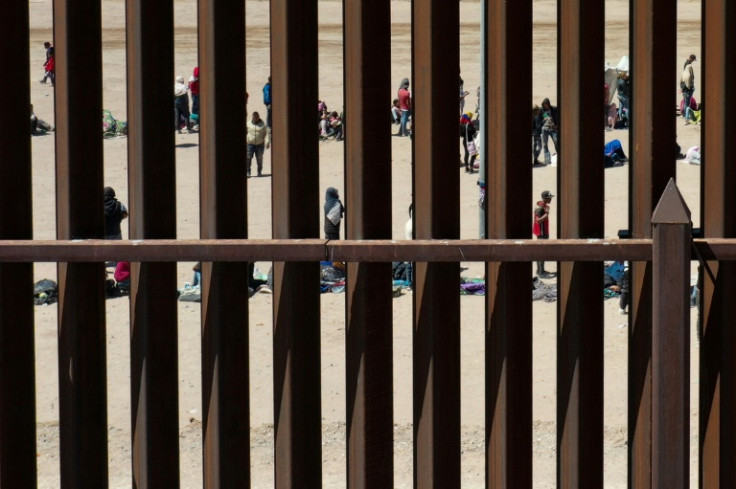
As border crossings continue at a sustained pace in the United States, new data shows that the amount of migrants living in the country while they wait for a hearing to determine whether they'll be allowed to stay could surpass eight million this year.
The figure, reported first by Axios and taken from Homeland Security documents sent to Congress, represents a 167% increase compared to 2019, when it was about three million. It grew to more than six million by the end of fiscal year 2023 (that is, in September of that year) and is set to continue increasing.
About two million of them are set to be high-priority cases: people who have already been ordered to be deported, some of them with criminal records or pending criminal charges.
The overall figure is comprised by people who have been ordered to be deported or who haven't received a final decision on their cases (whether an asylum claim or otherwise) and are not being held in the 40,000 detention beds that Immigration and Customs Enforcement (ICE) has available.
Immigration has dominated the political agenda in the U.S. during the past months, and is set to continue doing as the electoral period heats up. Both candidates have gone on offense, trading barbs about the most effective way to deal with the issue.
A recent report by the Washington Post showed that former President Donald Trump is crafting a set of potential measures described as "the largest domestic deportation operation in American history," including the use of the military for these purposes and the building of mass detention camps.

More recently, he said he said he will use local police to carry out deportations of immigrants who crossed the southern border illegally should he be elected in this year's elections.
Trump made the statement in an interview with Fox News following his trip to the border on Thursday, which took place on the same day as one from President Joe Biden. Trump, who went to Eagle Pass, Texas, said that "we have to deport a lot of people, and they have to start immediately."
He also said he would give "immunity" to police officers to do "the job they have to do." "It's going to be the local police are going to turn them over, and we're going to have to move them back to their country," he added.
Biden, on his end, has blasted Republicans in general and Trump in particular for not moving forward with a bill that would have allocated $15 billion to border security and, among other things, given him the ability to temporarily "shut down the border." Biden's campaign has also called Trump's plans "racist, un-American, and ineffective."
"It's cheap politics as usual, at a time when the American people demand action from their elected officials," Maca Casado, the Biden campaign's Hispanic media director, said in a statement following the Washington Post report.
Biden, on his end, is also considering implementing a series of unilateral measures aimed at stemming the flow of migration to the country since congressional negotiations hit a wall.
According to a report by NBC News, among the measures there would be some that would make it harder to qualify for asylum and others that would make it easier to quickly deport people who don't meet the criteria for this.
Quoting three people with knowledge of the deliberations, the report claims that asylum officers would be instructed to raise the standards of "credible fear interviews," the first step in the screening process for those who cross the border illegally. Moreover, law enforcement officials would be told to prioritize recently arrived migrants for deportation.
The shift in rhetoric comes as almost 80% of people in the U.S. believe the soaring of crossings in the southern border of the country is a grave problem and that the Biden administration is not doing a good job addressing it, according to a new poll by the Pew Research Center.
Another poll by Gallup from last week showed that an increasingly growing number of Americans consider immigration to be the most important problem facing the country, above the government and the economy.
Overall, 28% of respondents said that was the case in February, an increase of eight percentage points compared to the previous month. It has surpassed the government (20%) and the combination of the "economy in general" (12%) and inflation (11%), over this time period.
© 2025 Latin Times. All rights reserved. Do not reproduce without permission.






